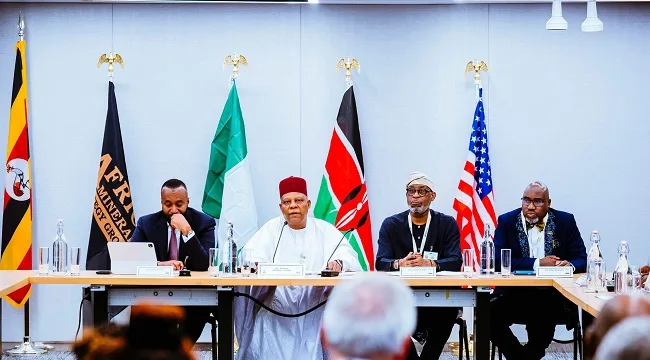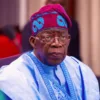President Bola Tinubu has called for a complete reconfiguration of the global financial architecture governing Africa’s mineral resources, urging the continent to finance its own mineral sector and assert collective influence over global supply chains.
Represented by Vice President Kashim Shettima at the Second Africa Minerals Strategy Group (AMSG) High-Level Roundtable on Critical Minerals Development, held on the sidelines of the 80th UN General Assembly in New York, President Tinubu laid out a bold vision for Africa’s mineral-led economic transformation.
“We must take the bull by the horns in financing our future. Never again shall we wait for capital to trickle in. With sovereign funds, blended vehicles, and innovative tools like the Africa Mineral Token, Africa shall finance Africa,” Tinubu stated in remarks shared by Stanley Nkwocha, Senior Special Assistant to the President on Media & Communications.
President Tinubu argued that protecting Africa’s sovereignty depends on the continent’s ability to shift from fragmented states to a cohesive bloc, leveraging its rich deposits of cobalt, lithium, graphite, gold, and rare earth elements to assert power in global value chains.
He called on African nations to stop exporting raw materials and instead invest in domestic beneficiation and green manufacturing, saying:
“We must end the ignoble cycle of exporting rocks and importing finished goods. Africa must build industries on African soil.”
Tinubu outlined several imperatives for realising the continent’s mineral potential. African countries must build industries to process minerals locally, ending dependence on imported finished goods. He hailed the African Minerals and Energy Resource Classification (AMREC) and Pan-African Resource Reporting Code (PARC) as tools to reclaim ownership of Africa’s mineral data. He stressed that without exploration, there can be no sovereignty. Every country must commit to nationwide geological mapping and strengthen geological institutions. Finally, Africa must stop relying on foreign capital and instead invest in itself through sovereign wealth funds and digital financial instruments like the Africa Mineral Token.
President Tinubu noted that Nigeria, alongside Uganda, Zimbabwe, Burkina Faso, Mali, Botswana, Gabon, and Ghana, is already taking bold steps by banning the export of raw minerals and pushing for domestic processing.
“Zimbabwe’s ban on raw lithium in 2022, Gabon’s planned end to manganese exports by 2029, and Kenya’s new restrictions on raw gold exports are historic acts of courage. Nigeria is accelerating similar reforms — this is the road to jobs, industries, and prosperity,” he said.
Tinubu also praised Nigeria’s Minister of Solid Minerals Development, Dr. Dele Alake, for chairing the roundtable and for his leadership in repositioning the sector.
Tinubu urged African leaders, sovereign wealth funds, and development partners to support Africa’s new mineral economy, emphasizing collective leadership and transparency.
“Let us rise from this dialogue with a communiqué of clarity, a framework for action, and a spirit of unity,” he concluded.
UN Assistant Secretary-General and Regional Director for Africa, Ahunna Eziakonwa, warned against exploitative partnerships and emphasized the importance of value addition, technology transfer, and job creation.
“There’s a scramble for Africa’s minerals. Africa must shape the terms of these partnerships,” she said.
Jutta Urpilainen, EU Commissioner for International Partnerships, added that the EU had adopted the Critical Raw Materials Act (2024) to secure and diversify its mineral supply chains, noting that four of its 14 strategic partnerships are with African countries.
Earlier, Dr. Dele Alake welcomed participants and called for unity among African nations.
“With determined focus and transparency, Africa will harness the full benefits of a harmonised and industrialised mineral sector. These resources are indispensable for global sustainable development,” he said.


